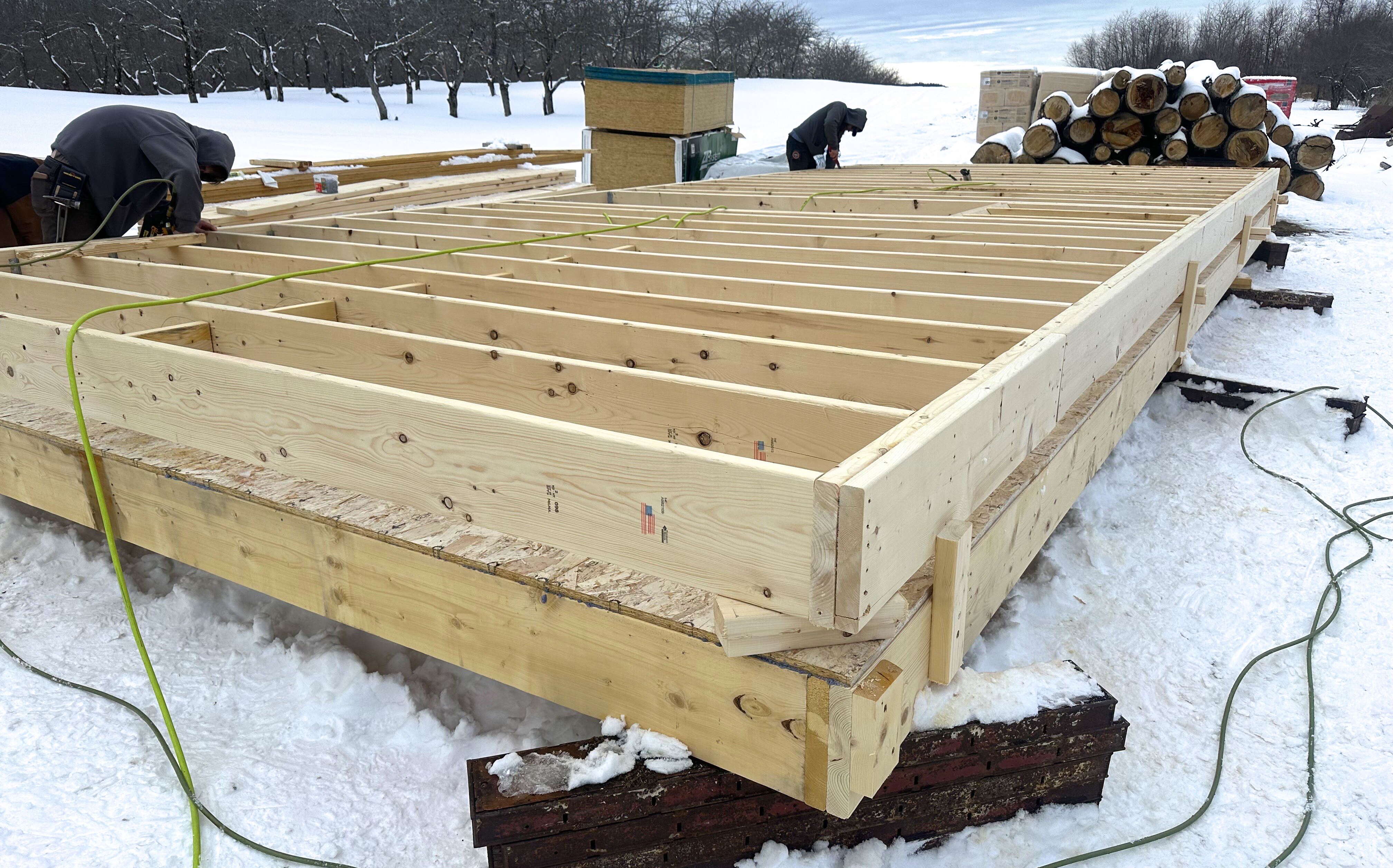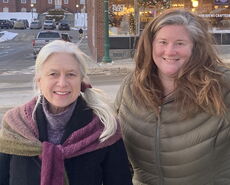
In Searsport, a demonstration house underway that's affordable and energy efficient
 Rendering / Courtesy Zero Energy Homes
Zero Energy Homes is building a single-family demonstration home in Searsport to show that modular construction combined with net zero energy principles can be priced for the affordable housing market.
Rendering / Courtesy Zero Energy Homes
Zero Energy Homes is building a single-family demonstration home in Searsport to show that modular construction combined with net zero energy principles can be priced for the affordable housing market.
The builder of a single-family demonstration home at 14 Osprey Lane in Searsport wants to show that modular construction combined with “net zero energy” principles can be priced for the affordable housing market.
Zero Energy Homes, in the Hancock County town of Mount Desert, commissioned construction of the two-bedroom, one-bath house, with 896 square feet on one floor and a second floor that can be finished in the future.
The plan is to sell the demonstration home to a year-round homebuyer earning 80% of area median income, as defined by MaineHousing.
“Our goal is to build up to 10 more of these homes in 2025,” Caroline Pryor, Zero Energy Homes’ founder and president, told Mainebiz.
Energy-efficient
The house is connected to the grid and town water and sewer, and will include exterior wood siding, wood-fiber insulation, 10-inch-thick walls, a well-insulated roof, heat pumps, energy recovery ventilation system, triple-glazed windows, energy-efficient appliances and lighting and a solar array sized to power the energy needs of the house.
The array will be installed by Maine Solar Solutions and financed in part by federal and state tax credits.
A building that operates at net zero energy generates as much power as it uses.
“These homes should have very low or no heat and electric bills,” said Pryor.
Zero Energy Homes partnered with Maker Construction, a firm specializing in modular and panelized home construction and earthwork, to build the wall, floor, and roof sections in panels at Maker’s Hebron property.

The design team includes Portland architecture and design firm BrightBuilt Home. Fritz Architectural Design in West Paris provided construction drawings
O'C Project Management in Belfast is the on-site project manager.
The demonstration home broke ground last October. The panels are scheduled to be delivered in March.
The design is a Cape style selected to fit with Maine communities.
Expected completion is this spring.
The Elmina B. Sewall Foundation in Freeport provided the construction loan.
Nonprofit background
Pryor has a four-decade background in nonprofit work, including conservation, fundraising, affordable housing and strategic planning.

The choice of Searsport for the company’s first demonstration home was partly due to a relationship with Penquis, a community action agency that had undeveloped but permitted building lots in the Waldo County town, Pryor said.
Zero Energy bought the lot for $26,000.
Once the company has established designs for single-family homes, the plan is to expand to duplexes and stacked, multi-family designs that fit well in town and city centers, with a goal to build them even more affordably with fewer materials, she said.
The overall target market includes households that earn from approximately 80% to 150% of area median income. Depending on the area, that’s about $50,000 to $110,000 per year.
Development of the company started in 2019, with the Elmina B. Sewall Foundation providing two grants that supported research and an assessment of the former Katahdin Region mills as a location. The Millinocket nonprofit Our Katahdin served as a fiscal sponsor.
Funding over the next few years came from foundation grants and several angel donors, totaling $200,000. Additional guidance came from a national business accelerator called start.coop. A $52,000 grant from the U.S. Endowment for Forestry and Communities helped pay for a market study.
Zero Energy Homes is now part of the Sewall Foundation's investment portfolio, which provided a construction loan for the Searsport project for up to $375,000 at 2% interest deferred.
A second foundation also provided a loan at a preferred rate.
A total of 14 investors signed on for the first round of fundraising, which allowed the Searsport project and the company to move forward.
Manufacturing facility
The company has a larger goal: to build a 15,000-square-foot modular manufacturing facility for efficient, year-round construction of its homes.
Several pledges have been received for a second round of funding, which aims to raise $4.5 million to build and equip the facility, which is planned for the Belfast-Ellsworth area, and to hire crew.
“Creating a replicable model that other communities can use is part of our objective,” said Pryor.
Modular manufacturing’s benefits, she said, include precision manufacturing, bulk ordering and pricing for materials and supplies, reduced time and transport for workers, equipment and materials, lean manufacturing and zero-waste operations, employee training and competitive compensation and reduced neighborhood impacts during home construction.
A search is underway for a location and for a vice president of manufacturing operations, with the first year’s salary financed by a Maine Technology Institute grant.
The goal is to have the plant up and running in 2026.
Zero Energy Homes is in the midst of transitioning from a limited liability company, or LLC, to a for-profit employee-owned cooperative. To date, Pryor has not been paid. But it’s expected that this year’s budget will include pay for Pryor and others as they come aboard.
Pryor said local contractors are key to the venture.
“The social capital is another part of the stack here,” she said. “The people who do the labor are very interested in this, because they know these homes will be their neighbors — maybe a volunteer with the fire department or a teacher. People are coming to us and saying, ‘I want to work with you.’”
Mainebiz web partners
Good luck to you all on this very important endeavor!










1 Comments